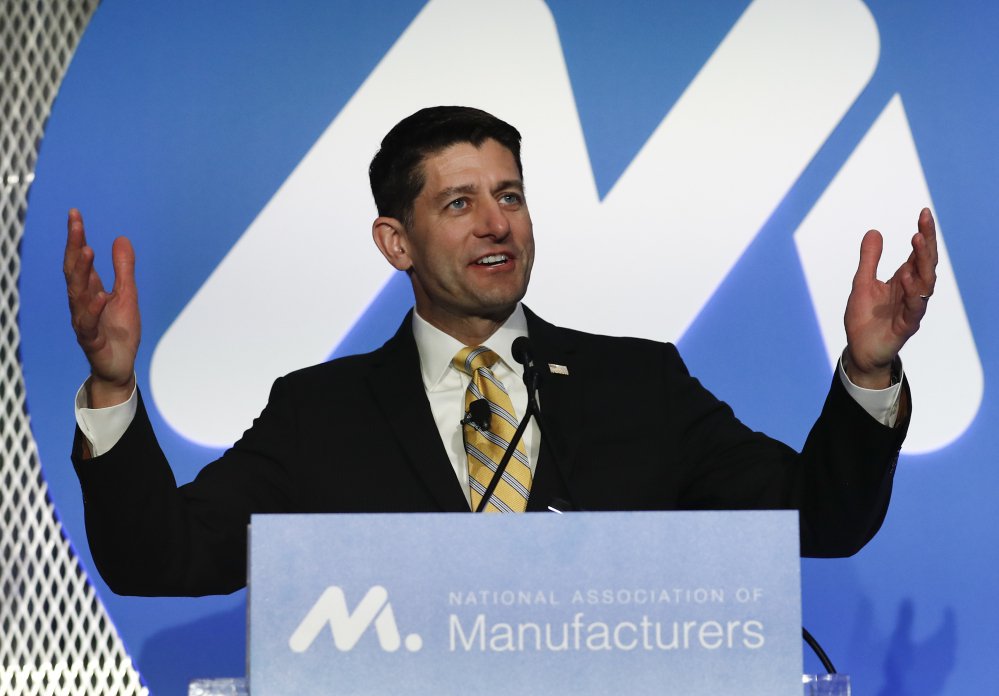Republicans have said repeatedly that their tax reform plan, details of which are still in flux, will be “revenue-neutral.” That’s Washington-speak for: The rewritten tax code will raise as much money for the government as the old one, so as not to increase the national debt.
Unfortunately, as President Donald Trump prepares to go on the road rallying public support for tax reform this week, there are signs this promise of fiscal responsibility might be about to get, well, bent. Bear with us for some technical background. Revenue neutrality is not an absolute, but measured in relation to how much money Uncle Sam would take in under a given set of assumptions. Under current tax law, revenue should rise from 17.3 percent of gross domestic product now to 18.4 percent by 2027, according to the Congressional Budget Office. Before the August recess, the House Budget Committee actually voted for a bill that said tax reform would have to produce as much revenue as this so-called “current law” baseline projects. This happens to be the usual rule.
Yet the Senate Budget Committee has yet to decide whether to follow suit, and key voices in the Republican camp are urging that lawmakers define revenue neutrality down, via adoption of a more fiscally permissive standard known as the “current policy” baseline. Current tax law is cluttered with special “temporary” breaks that Congress has habitually renewed in the past. Assuming that this past practice, not the letter of the law, would prevail reduces the government’s expected revenues by nearly a half-trillion dollars over the coming decade. To the extent that it comports with Congress’s fiscally slipshod history, the “current policy” baseline does have the advantage of realism, just as Speaker Paul Ryan’s “Better Way” blueprint noted last year. Not coincidentally, however, it also makes it easier to slice tax rates for the wealthy and business without offsetting loophole reductions, and still claim revenue neutrality.
There’s another catch: In December 2015, Congress passed a bipartisan measure making many of the perennial “temporary” tax breaks permanent, which, by negative implication, made the remaining ones really, truly subject to expiration. Indeed, the bill was trumpeted as a last go-round for the bad old habit of extending such breaks. Senate Finance Committee Chairman Orrin Hatch, R-Utah, specifically said the law would “end . . . the repeated tax extenders exercise,” making “conditions vastly more favorable for comprehensive tax reform in the future.” For Republicans to act as though none of those words had any meaning would confirm that rules were made to be broken.
Editorial by The Washington Post
Send questions/comments to the editors.



Success. Please wait for the page to reload. If the page does not reload within 5 seconds, please refresh the page.
Enter your email and password to access comments.
Hi, to comment on stories you must . This profile is in addition to your subscription and website login.
Already have a commenting profile? .
Invalid username/password.
Please check your email to confirm and complete your registration.
Only subscribers are eligible to post comments. Please subscribe or login first for digital access. Here’s why.
Use the form below to reset your password. When you've submitted your account email, we will send an email with a reset code.